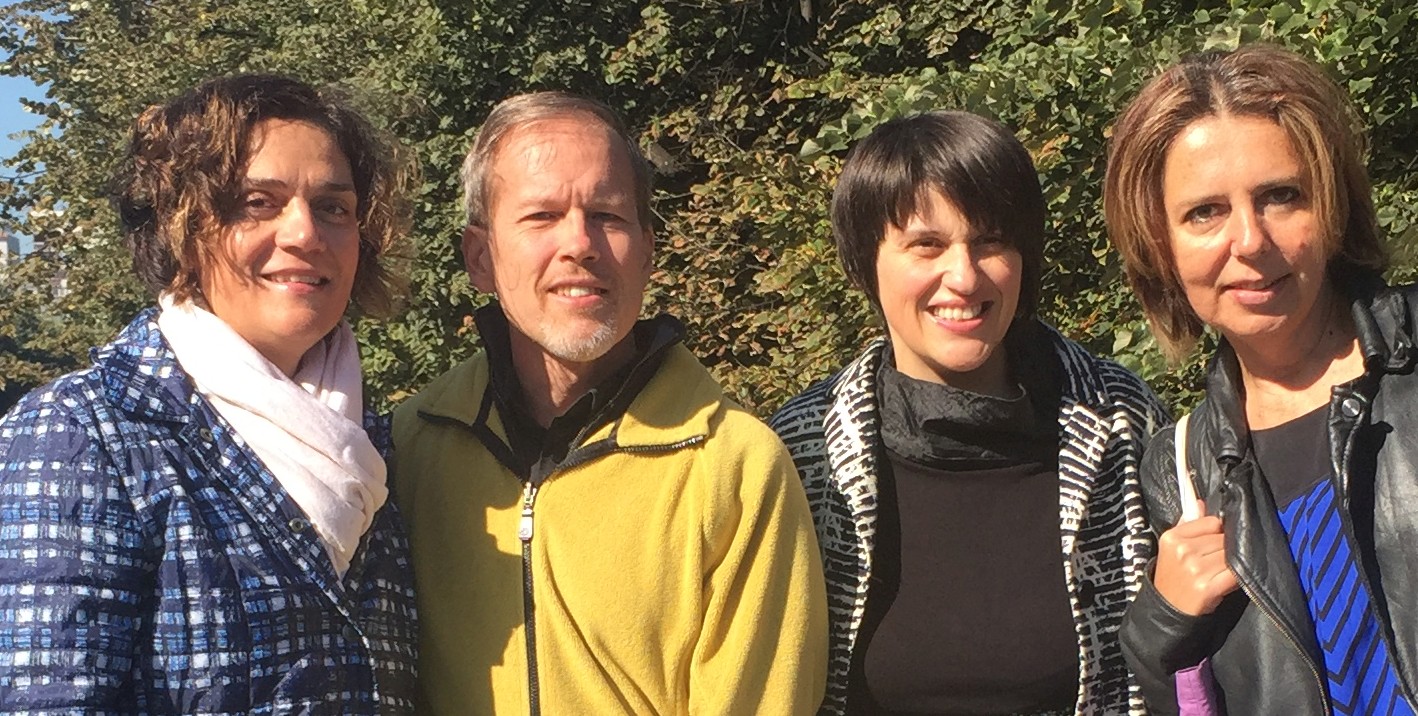
Peace Academy Board
Nejra Nuna Čengić gained a PhD in the Anthropology of Everyday Life from AMEU-ISH Ljubljana/Maribor, Slovenia, focused on the relationship between war violence and speech. Nejra has over 20 years of working experience in NGOs, IGOs and the academy in Sarajevo, Bosnia and Herzegovina (BiH). From 2007/2008 onwards she has taught the postgraduate course Life Stories and Dialogues at the Centre for Interdisciplinary Postgraduate Studies at the University of Sarajevo, where she also gained most of her professional experience. She made a significant contribution to the establishment of the Gender Studies Programme at the University of Sarajevo. Her main research interests focus on memory, speech, violence, gender and work. She is currently conducting a research project on the influence of international intervention on the reconfiguration of labour in BiH.
Azra Ibrahimović is a psychologist and Islamic theologian and works at the Nahl Education and Research Center as Head of Psychological Counseling office. She is an activist in the regional Believers for Peace initiative. She is engaged as a peace activist and participant in inter-religious dialogue projects in the Western Balkan countries and as a trainer of non-violent communication.
Amela Puljek-Shank holds a Master’s Degree in Conflict Transformation from the Center for Justice and Peacebuilding at Eastern Mennonite University. She co-wrote the chapters “Journey of Healing” in Positive Approaches to Peacebuilding: A Resource for Innovators (2003) and “The Contribution of Trauma Healing to Peacebuilding in Southeast Europe” in Peacebuilding in Traumatized Societies (2007). She also wrote the chapter “Trauma and Reconciliation” in 20 Pieces of Encouragement for Awakening and Change (2007). She worked as a facilitator with the Seeds of Peace Program for youth from deeply divided societies from the Middle East, Asia, and Balkans. Amela taught in the field of trauma healing and recovery at the Summer Peacebuilding Institute at Eastern Mennonite University. As Mennonite Central Committee Representative for Southeast Europe and later East Europe from 2002 until 2012, she designed and led peacebuilding and trauma healing programs as a trainer while developing innovative training aids for understanding key concepts related to trauma. Later as Mennonite Central Committee’s Area Director for Europe and Middle East from 2012 until 2019 she was responsible for program implantations, organizational policies that foster staff resilience and worker care in addition to being frequently involved in responding to crisis situations. Currently she is pursuing further studies in the field of peacebuilding that focuses on resilience, healing, and intercultural competence.
Azra Smailkadic-Brkic was born and raised in Bosnia and Herzegovina. The war in Bosnia and its aftermath fostered her interests in genocide prevention, conflict management, and peace building. She earned a Master’s Degree in Human Rights from the University of Sarajevo and University of Bologna. At the Inter-University Center of Dubrovnik and the University of Sarajevo, she worked as the Program Coordinator of the Master’s-level course "War Crimes, Genocide and Memories," which was the first of its kind in Southeast Europe. She served as a consultant for the PBS/WNET documentary "Women, War and Peace in Bosnia" which was the first major television initiative to focus on the strategic role of gender in modern conflict. In 2010 Azra has won fellowship from Columbia University's Institute for the Study of Human Rights (Human Rights Advocates Program). She envisions a world free from all forms of violence, stereotypes and discrimination.
Director
Dr. Randall Puljek-Shank is a peacebuilding practitioner and political scientist based in Sarajevo. He designed and facilitated exchanges for selected government and NGO participants from the Ukraine to learn from the experience of Bosnian practitioners and led a series of trainings in the Ukraine on ‘Do no harm’ approaches. He has supported curriculum creation and implementation of the MA in Interreligious Studies and Peacebuilding, a collaborative degree between Islamic, Catholic and Orthodox schools of theology. At the PeaceNexus Foundation he guideed the organizational development of PeaceNexus partners and encouraged inclusive dialogue with businesses. His recent consultant engagements include work on the Peace and Development Assessment for the United Nations Country Team in BiH, working as team lead of a Country Program Review for Mennonite Central Committee Colombia and lead facilitator for CSO strategic consultation regarding social cohesion.
Recent publications:
- Civil society in a divided society: Linking legitimacy and ethnicness of civil society organizations in Bosnia-Herzegovina, Cooperation and Conflict,52(2),184-202
- Activism in Bosnia-Herzegovina: Struggles against Dual Hegemony and the Emergence of 'Local First', East European Politics and Societies: and Cultures, 33(1), 135-156.
- Civic Agency in Governance: The Role of Legitimacy with Citizens vs. Donors, VOLUNTAS: International Journal of Voluntary and Nonprofit Organizations", 29(4), 870-883.
- "Beyond projects: Local legitimacy and civil society advocacy in Bosnia and Herzegovina. Sarajevo: Friedrich Ebert Foundation.
- "Politics and Civil Society". Published as “Politika i civilno društvo”. 2020. in Vrijednosti u BiH: Prikaz rezultata Evropske studije vrijednosti 2019. J. Kolenović Đapo & J. Brkić Šmigoc (Eds.), Sarajevo: Friedrich Ebert Foundation.
- "Advocacy Manual for Associations and Citizens in BiH." 2022. Sarajevo: Transparency International.

